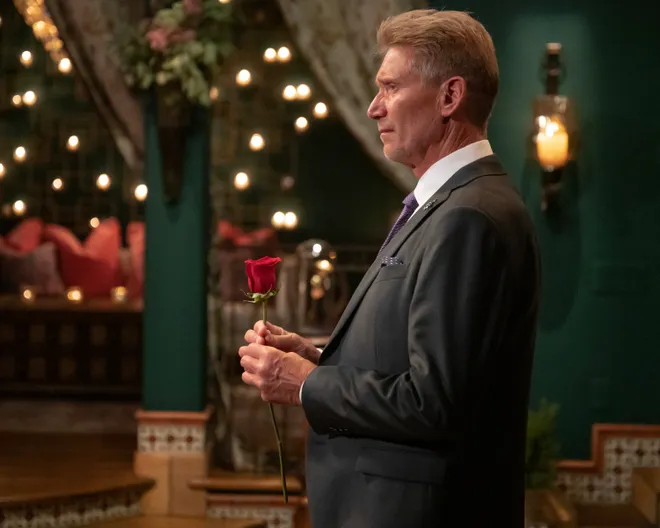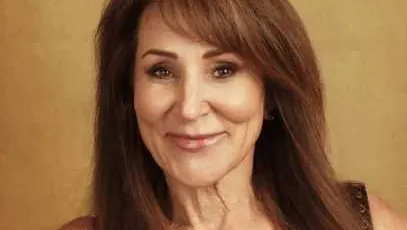'The Golden Bachelor', 'Selling Sunset' and grieving on TV
If you'd like to share your thoughts on grief with USA TODAY for possible use in a future story, please take this survey here.
It's too awkward to bring up. Or maybe it's too soon. Or too sad.
Grief is a touchy subject no matter who you are. That's why it's been so refreshing to see it rawly represented on reality television lately, from ABC's "The Golden Bachelor" (airing Thursdays) to the latest season of Netflix's "Selling Sunset" (now streaming).
"While people tend to be drawn to happy endings, the reality is that there are many sad, sometimes even tragic endings that impact our lives," says Alan Wolfelt, founder and director of the Center for Loss and Life Transition. While reality TV is often aspirational (think HGTV) or overdramatic (think "Real Housewives"), grief puts the "real" in "reality" in a way viewers may actually crave.
Watching these stories onscreen validates our own journeys, according to grief experts, making for a cathartic experience for both the stars and audiences alike.
"Everyone has – you're very lucky if you haven't gone through it yet – but at some point, everyone deals with this," says "Selling Sunset" realtor Chrishell Stause. "And I think that as much as we normally don't want to talk about it, it's very comforting when you can feel connected to someone that knows what you're going through, that is still moving forward and putting one foot in front of the other, which at some points in your life really feels impossible."

'No one else understands'
On this senior citizen-focused "Bachelor" spinoff, 72-year-old Gerry Turner is a widower looking for love. His late wife comes up in conversation frequently, as do the late husbands of women he's dating. It serves as a bonding moment between them.
"When you're on a date with someone who shares the grief, that's the key element," Turner says. "I'm on a date with someone who also had a very long marriage and lost their spouse. And there is a certain feeling that no one else understands. And when you have that connection, it's pretty overwhelming."
That understanding translates across the screen and into homes across the country where audiences are curled up on comfy couches. "Including people who are bereaved on reality television helps viewers who are going through grief feel acknowledged, and those who aren’t grieving to gain an understanding of what someone else might be experiencing," says Maria Bailey, founder of griefspecialists.org.
'It's just something that you don't forget'
On this season of "Selling Sunset" – which is a real estate-meets-"Real Housewives" kind of series – several grief stories reverberate among the realtors. Mary Fitzgerald and husband Romain Bonnet grapple with a miscarriage, and after a health scare involving a hospital visit, Stause can't help but think of her deceased parents.
"I thought that I was completely over it – well not completely, you never are – but I thought that I was more healed than I was," Fitzgerald says after watching the season back. "It's always hard when you re-watch something. It just brings up old wounds. But I'm hoping that it will help other people because it's so common. So I'm hoping that other women that have gone through the same thing can watch it and feel like they're alone."

Stause, who had an ovarian cyst taken out, expressed her renewed memories of grief to colleague Emma Hernan in an emotional scene. The last time Stause was in the hospital, she was with her mother who died.
"Anyone that's lost someone that they love, and they're there for their last moments, it's just something that you don't forget," Stause says "And that was the last time I was in a hospital. And so I think that when those things happen, it just, whether you like it or not, it really does put a focus on your own life and going back into the hospital just kind of brought me back to that place I was before, with losing my mom."
The moment sends a clear message of solidarity to viewers. "It’s easy to try and carry on as normal and 'sweep feelings under the carpet' but having moments on television where grief and loss is talked about enables people to take a moment or some time to talk about their experiences," Bailey says.
More on 'Golden Bachelor':Gerry Turner explains his wild lion tattoo before 'Golden Bachelor' heads to hometowns
'Bonds the audience in real life'
Some viewers will likely feel triggered by watching grief on television. But that doesn't meant they should avoid it. "I would urge viewers to feel what they’re feeling, and cry if they need to as what they’re experiencing are normal reactions to loss," Bailey says. "Letting your feelings out in the moment will help with processing grief, rather than bottling it all up for later."
Wolfelt adds: "We live in what I often call a 'mourning-avoidant/emotion phobic' culture surrounding grief and life transitions. In bearing witness to grief, viewers can come to realize they are not immune to the reality of heartbreak that comes along the path of off living their lives."
Reality TV will, of course, always have its silliness. But that doesn't mean a deeper reality can't trickle in now and again.
As Stause puts it: "It's the one time I really do feel like it bonds the audience in real life."
Contributing: Bryan Alexander
Check out our grief series:Fired at 50, she felt like she'd lost everything. Then came the grief.

Disclaimer: The copyright of this article belongs to the original author. Reposting this article is solely for the purpose of information dissemination and does not constitute any investment advice. If there is any infringement, please contact us immediately. We will make corrections or deletions as necessary. Thank you.







